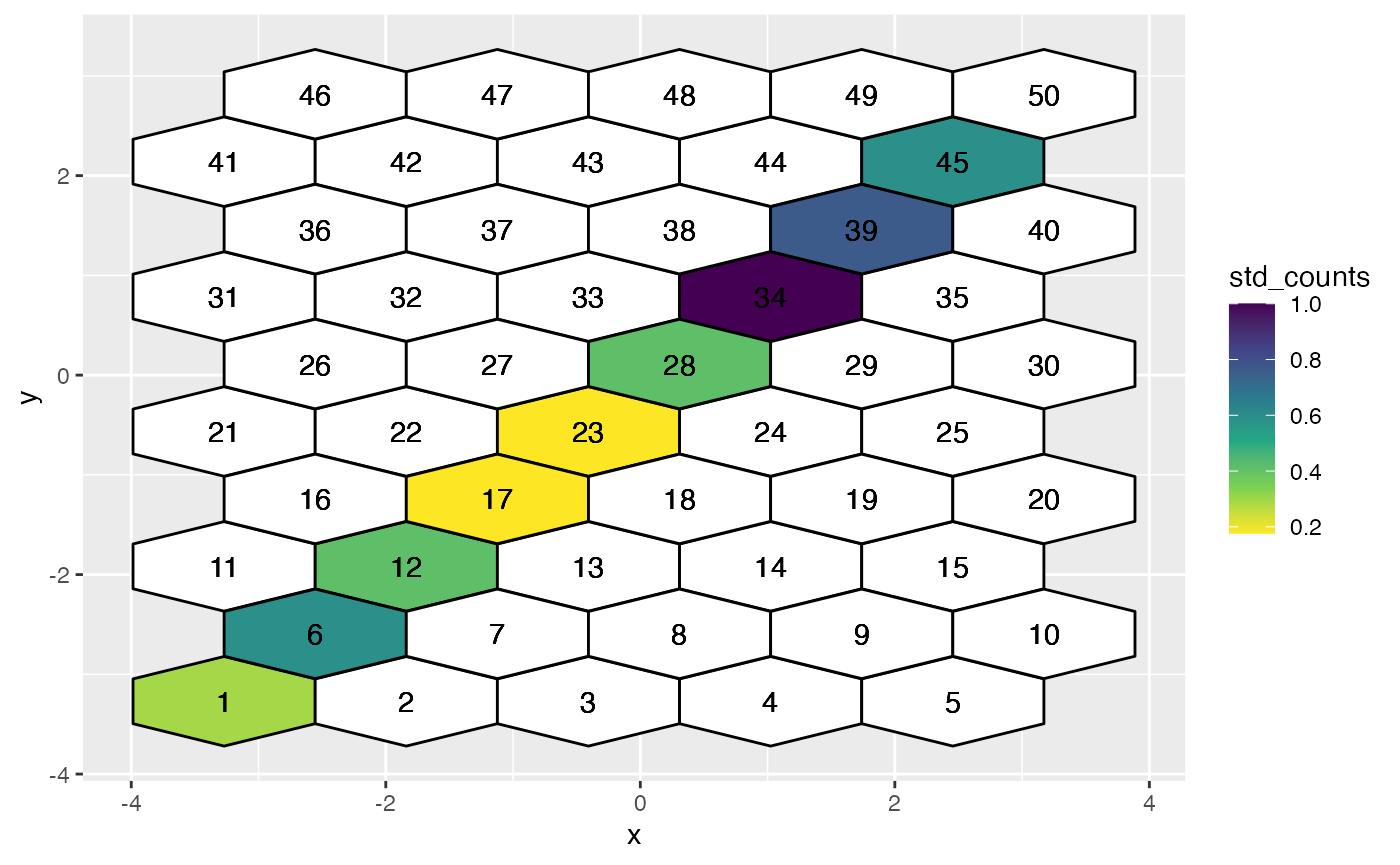To generate the full hexagonal grid, you need to start from the bin
centroid info that obtained from
extract_hexbin_centroids().
## Data set with all possible centroids in the hexagonal grid
full_centroid_df <- generate_full_grid_centroids(df_bin_centroids)
full_centroid_df
#> # A tibble: 50 × 2
#> x y
#> <dbl> <dbl>
#> 1 -3.27 -3.27
#> 2 -1.84 -3.27
#> 3 -0.407 -3.27
#> 4 1.02 -3.27
#> 5 2.46 -3.27
#> 6 -3.27 -1.92
#> 7 -1.84 -1.92
#> 8 -0.407 -1.92
#> 9 1.02 -1.92
#> 10 2.46 -1.92
#> # ℹ 40 more rows
## Generate all coordinates of hexagons
hex_grid <- full_hex_grid(full_centroid_df)
ggplot(data = hex_grid, aes(x = x, y = y)) + geom_polygon(fill = "white", color = "black", aes(group = id)) +
geom_point(data = hex_grid, aes(x = x, y = y), color = "black") +
geom_point(data = df_bin_centroids, aes(x = x, y = y), color = "red")
ggplot(data = hex_grid, aes(x = x, y = y)) + geom_polygon(fill = "white", color = "black", aes(group = id)) +
geom_point(data = full_centroid_df, aes(x = x, y = y), color = "black") +
geom_point(data = df_bin_centroids, aes(x = x, y = y), color = "red")
hex_full_count_df <- generate_full_grid_info(df_bin_centroids)
ggplot(data = hex_full_count_df, aes(x = x, y = y)) +
geom_polygon(color = "black", aes(group = polygon_id, fill = std_counts)) +
geom_text(aes(x = c_x, y = c_y, label = hexID)) +
scale_fill_viridis_c(direction = -1, na.value = "#ffffff")
